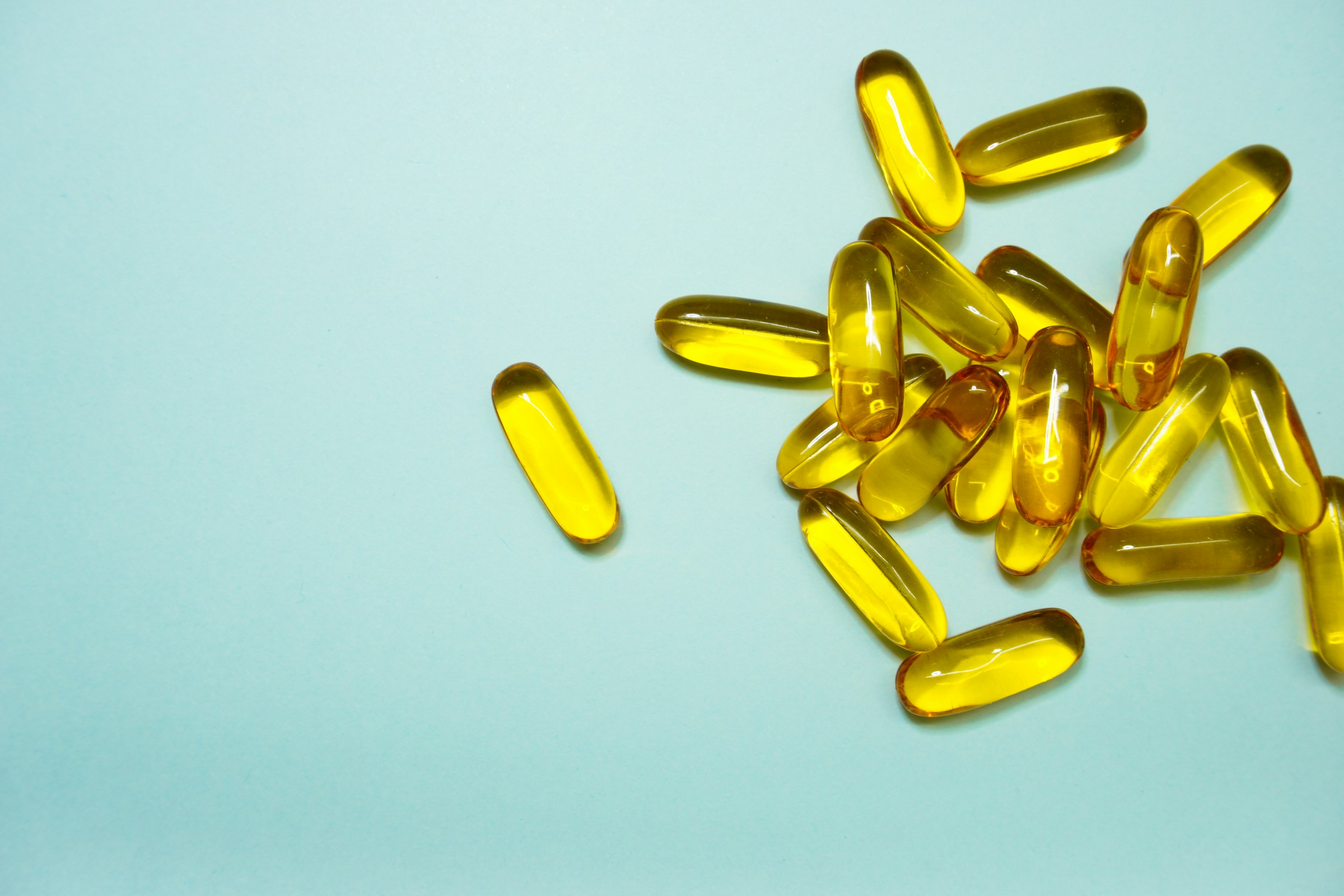
Looking for Vitamin D3 near you? Discover why you need it, where to get it, and how it supports immunity, bones, and overall health.
When it comes to vitamin D, there is no substitute for sunshine. This is because vitamin D is not a vitamin at all. Instead, it's a fat-soluble hormone that helps regulate calcium and phosphorus in the body and promotes healthy bones, tissues, and organs. When exposed to sunlight, your skin produces a form of vitamin D that benefits your health. The trouble is that not everyone gets enough sunlight. Supplementing vitamin D3 (most compatible with the human body) can help mitigate these risks. You should first check for vitamin D deficiency if you’re considering supplementation. The next step is to find high-quality vitamin D3 nearby. This article will help you determine if vitamin D3 is right for you and how to find quality products with a quick search for vitamin D3 near me. But, how to measure sun exposure?
One tool that can help you determine if vitamin D3 is right for you is SunSeeker's daily sunlight exposure tracker. This easy-to-use tool can help you determine how much vitamin D you can get from the sun based on your local UV levels, personal information, and daily activities.
Table of Contents
What are the Benefits of Vitamin D3 and Who Needs to Take It?
Download Our App to Track your Daily Sunlight Exposure Today
What are the Benefits of Vitamin D3 and Who Needs to Take It?

Vitamin D3 (cholecalciferol) is most well-known for promoting bone health. But this vitamin is also pivotal for:
Boosting the immune system
Enhancing mood and muscle function
Supporting heart health
A vitamin D3 supplement may help you achieve glowing skin and better mental clarity.
Signs of Vitamin D Deficiency and When to Consider a Supplement
Your skin naturally produces vitamin D3 when exposed to the sun. Eating fish, beef, and cheese provides a natural boost of vitamin D3, too. Still, vitamin D deficiency is a common problem that can result in:
Bone pain
Muscle weakness
Spasms
Your healthcare provider may suggest a vitamin D3 supplement if you are deficient, live in a low-sun area, or have a health condition, like osteoporosis, that would benefit from it.
How Vitamin D3 Supports Overall Health and Reduces Chronic Disease Risks
1. Bone Health
Vitamin D3 plays a crucial role in forming and maintaining strong, healthy bones. This vitamin is essential for bone health because it:
Enhances the absorption of calcium from your digestive tract
Regulates the use of calcium and phosphorous for proper bone formation
Supports bone repair to maintain and regrow bones as needed
Prevents bone disorders, such as osteoporosis and rickets
Low calcium intake and vitamin D deficiency are directly linked to the onset of osteoporosis. Researchers have found that older people taking vitamin D3 and calcium supplements have a reduced risk of hip and non-vertebral fractures (bones outside the spine).
2. Immune System
Vitamin D3 regulates immune responses, ensuring your immune system responds appropriately to pathogens and other suspected invaders. Your immune system requires vitamin D3 because the vitamin:
Enhances the immune system's ability to fight infections
Boosts the production of peptides that help defend against bacteria, viruses, and fungi
Regulates inflammation
Helps prevent the immune system from attacking the body's tissues
Boosts overall immune strength
Some studies suggest that vitamin D supplementation may reduce the severity of certain autoimmune diseases, such as:
Rheumatoid arthritis
Multiple sclerosis
There is no consensus on how to use vitamin D3 to prevent or treat autoimmune diseases.
3. Mental Health
Low vitamin D levels are associated with increased symptoms of depression and anxiety. Some experts recommend screening for low vitamin D levels when developing a prevention and/or treatment plan for these disorders. Vitamin D3 is beneficial for your mood and mental health because it:
Regulates neurotransmitters, including serotonin and dopamine, which are responsible for regulating mood
Supports the brain's ability to learn, organize memories, and adapt to changes (neuroplasticity)
Reduces inflammation, which has been linked to several mental health and mood disorders, including depression, anxiety, and seasonal affective disorder
Numerous studies have examined the direct and indirect relationship between vitamin D and mental health. One standout revealed that people with vitamin D deficiency may be 75% more likely to develop depression compared to people with normal vitamin D levels.
4. Muscle Function
Although not everyone with vitamin D3 deficiency experiences symptoms, those who do commonly report muscle pain and muscle weakness. Vitamin D3 is beneficial for muscles because it:
Maintains muscle strength
Supports the contraction and relaxation of muscles, improving their performance
Promotes muscle recovery after exercise by reducing inflammation and promoting muscle tissue repair
Reduces muscle fatigue, weakness, and falls
Research has suggested that sunlight can increase vitamin D3 levels, but it is not clear that this translates to increases in physical performance.
5. Cardiovascular Health
Adequate vitamin D levels are crucial for preventing calcium imbalances. In severe cases, imbalanced calcium levels can lead to severe heart complications and may contribute to heart disease. Vitamin D3 is beneficial for heart health because it:
It plays a key role in regulating blood pressure
Reduces inflammation, protecting the heart and blood vessels from cardiovascular disease
Supports endothelial health, which is crucial for proper blood flow (the endothelium is the layer of cells lining the blood vessels)
It helps “clean arteries” and prevent atherosclerosis, or the buildup of plaque in arterial walls, a significant risk factor for heart attack and stroke.
Supports healthy cholesterol and triglyceride levels, thus reducing the risk of heart disease
Research shows that high doses of vitamin D are no more effective for improving heart health than modest doses. Taking small to moderate amounts of vitamin D can reduce your risk of:
Heart attack
Stroke
Cardiovascular disease
6. Metabolic Health
Evidence shows that taking a vitamin D supplement can help improve glucose homeostasis (steady blood sugar levels), insulin sensitivity, and overall metabolic health. Vitamin D is beneficial for metabolic health because it:
Regulates insulin sensitivity, which is essential for managing blood sugar and preventing type 2 diabetes
Reduces inflammation, a significant risk factor for numerous metabolic disorders, including obesity and insulin resistance
It helps your body break down, metabolize, and store fat
In people with pre-diabetes, vitamin D supplements have been shown to reduce the risk of progression to type 2 diabetes. Evidence suggests vitamin D supplementation may reduce the risk of type 1 diabetes, as well.
7. Glowing Skin
Maintaining healthy vitamin D levels is critical for people who wish to brighten dull skin and prevent or relieve inflammatory skin conditions. Vitamin D3 offers numerous benefits for the skin. The sunshine vitamin:
It plays a crucial role in skin cell growth and repair
Supports a strong and healthy skin barrier, which is essential for locking in moisture and preventing harmful microbes, chemicals, and allergens from penetrating your skin
Enhances the wound healing process, reducing the risk of infection
Promotes glowing skin by improving skin tone and texture
Protects your skin from damage due to UV rays from the sun
Reduces the risk of many skin conditions, including psoriasis and eczema
It may reduce the risk of skin cancer
Can reduce the appearance of age-related fine lines and wrinkles by promoting skin renewal and repair
Vitamin D3 supplements and skin care products containing vitamin D are often recommended for people with sensitive, mature, and aging skin and skin prone to redness and visible blood vessels (capillaries).
8. Cognitive Function
Vitamin D3 is thought to have many benefits for your brain and cognitive health. Vital for mental health and function, vitamin D3:
Protects the brain from inflammation and cell-damaging free radicals, both of which are linked to cognitive decline and neurodegenerative disorders like Alzheimer's disease
Supports proper cognitive development; Healthy vitamin D levels have been linked to improved learning and memory in both children and adults
Stabilizes mood and reduces the risk of mood and mental health disorders
Promotes neuroplasticity, further reducing the risk of neurodegenerative disorders
Reduces the risk of brain infections
Some evidence suggests that vitamin D deficiency when it occurs both before birth and throughout life, may contribute to the development of certain neurodevelopmental conditions. In expecting mothers with vitamin D deficiency, there appears to be a greater risk of the infant developing:
Autism
Schizophrenic-like disorders
Other mental illnesses later in life
9. Digestive Health
A growing body of research shows that vitamin D supplementation positively benefits digestive health. Vitamin D3 is important for digestive health because it:
Promotes a healthy and balanced microbiome, or the ecosystem of microbes that live in your digestive tract and influence your overall health
Protects against gut inflammation and disorders linked to it, including inflammatory bowel disease (IBD), Crohn's disease, and ulcerative colitis
Improves the function of immune cells in your gut, preventing against gut infections
Enhances the epithelial lining in your gut, by turn improving the absorption of key nutrients like calcium and magnesium
Prevents constipation by regulating gut motility, or the movements of the digestive system that push food from the stomach, through the intestines, and out the body
People with irritable bowel syndrome (IBD) often have vitamin D deficiency, even during remission. Having a reduced level of vitamin D is also a risk factor for worsened IBD symptoms.
10. Pregnancy Health
Vitamin D deficiency is a significant risk factor for several problems in expecting mothers and infants. Having adequate vitamin D3 levels is critical during pregnancy because it reduces the risk of the following:
Pre-term birth and low birth weight
Infant mortality within the first month of life
Recurrent miscarriages
Bacterial vaginosis in the expecting mother
Gestational diabetes mellitus in the expecting mother
Pre-eclampsia in the expecting mother
Vitamin D3’s Role in Pregnancy: Benefits for Mother and Baby
Vitamin D supplementation may also reduce the risk of the infant developing:
Attention-deficit hyperactivity disorder
Autism spectrum disorder
Other mental development issues in childhood
Some experts suggest that pregnant women take a vitamin D supplement of at least 400 IU daily to ensure adequate vitamin D levels and prevent pregnancy complications. Talk to your healthcare provider if you are pregnant and considering vitamin D supplementation.
11. Cancer Prevention
Researchers started investigating vitamin D's role in cancer prevention after noticing that people in southern regions with high sun exposure have lower cancer rates and mortality than those in the northern areas with less sun. Evidence suggests that vitamin D supplementation may:
Reduce the risk of some cancers, including breast, bladder, lung, and colorectal cancers, but more studies are needed
Enhance the immune system's ability to detect and destroy cancer cells
Slow the progression of existing cancer cells
Reduce the side effects of cancer treatments and improve quality of life
Help maintain bone health and density in people receiving chemotherapy
The overall research on this subject is mixed, with some studies showing no benefit for cancer prevention at all. If you have been diagnosed with cancer or are undergoing cancer treatment, consult with your healthcare providers before starting vitamin D or any other supplement.
12. Weight Management
Vitamin D supplementation appears to have several benefits for people with overweight or obesity who are trying to lose weight. Vitamin D3 is beneficial for weight management because it:
It helps regulate hormones, like leptin, that are involved in stimulating appetite
Promotes a healthier body composition with less excess fat and more muscle
Boosts muscle function and strength; having more muscle means you burn more calories at rest
It improves insulin sensitivity, which also enhances fat-burning
Can Vitamin D3 Help with Weight Management and Metabolism?
People with vitamin D deficiency are likelier to have a high body mass index (BMI) than those with adequate vitamin D levels. According to one clinical trial of women with overweight and obesity, women who took 50,000 IU of vitamin D per week had reduced weight, waist circumference, and BMI after six weeks. Remember that taking 50,000 IU of vitamin D per week is well over the recommended daily intake. The maximum safe dose of vitamin D supplementation is 4,000 IU per day. Do not exceed this amount unless supervised by a healthcare provider.
13. Healing and Recovery
Having adequate vitamin D levels is vital for your body's healing and recovery from:
Infections
Injuries
Other ailments
Beneficial for healing and recovery, vitamin D3:
Accelerates the growth of healthy new cells
Strengthens the skin barrier
Increases immune system activities that are essential to wound healing
Reduces inflammation
Protects against bacterial infections
Adequate vitamin D levels are also known to enhance the healing of bone fractures. More research is needed to determine a safe and appropriate vitamin D3 dosage.
14. Blood Pressure
Hypertension, more commonly known as high blood pressure, is a cardiovascular disease commonly seen in people with vitamin D deficiency. Some studies suggest that vitamin D3 may help lower blood pressure in people with hypertension and vitamin D deficiency, as well as specific groups of people with hypertension only. This is important because isolated systolic hypertension can increase the risk of:
Stroke
Heart disease
Chronic kidney disease over time
According to a 2019 review of studies in Medicine involving 1,687 people, vitamin D3 significantly reduced systolic (top number) blood pressure in people over 50 and those with obesity. Research findings have mixed results, with other studies finding no significant effects of vitamin D3 on high blood pressure.
15. Hair Loss Prevention
Vitamin D deficiency has been linked to several hair loss disorders, including telogen effluvium and alopecia areata. It has also been linked to scarring alopecia, a disorder that results in permanent hair loss. Despite these links, little data supports using vitamin D supplements to prevent hair loss.
Who Needs to Take Vitamin D3?
If you have a vitamin D deficiency or are at risk of developing one, you may need to take a vitamin D supplement. You are at greater risk for vitamin D deficiency if you have:
Celiac disease
Crohn's disease
Cystic fibrosis
Liver disease
Malnutrition
Obesity
You may also need to take a vitamin D3 supplement if you:
Are housebound
Spend long hours indoors
Live in a region with low sunlight
Health Conditions That May Require Vitamin D3 Supplementation
Your provider may recommend a vitamin D3 supplement if you have an ailment that would benefit from it. Vitamin D3 supplements are commonly recommended for people who have or are at an increased risk for:
Osteoporosis
Autoimmune diseases
Heart diseases
How Much Vitamin D3 Should I Take Daily?

The National Academy of Medicine recommends a daily intake of 600 IU of vitamin D for people ages one to 70 and 800 IU for adults ages 71 and over. The majority of vitamin D intake should come from food. The maximum safe dose of vitamin D3 is 4,000 IU per day. Do not exceed this amount without consulting a healthcare provider. National Heart, Lung, and Blood Institute. Vitamin D for heart health: where the benefits begin and end.
Symptoms of Vitamin D3 Deficiency
Not everyone with vitamin D deficiency experiences symptoms. When symptoms do occur, they may include:
Muscle pain
Bone pain
Increased sensitivity to pain
Tingling or “pins and needles” sensations in hands or feet
Muscle weakness in body parts near the trunk of the body, such as upper arms or thighs
Muscle weakness in hips or legs, which may cause you to waddle while you walk
Increased risk of bone fractures
Muscle spasms
Bowed legs (in severe cases)
Sources of Vitamin D3
Whether you are nutritionally deficient or simply want to meet your recommended daily intake (RDI) of vitamin D, you can get vitamin D3 from:
Animal-based foods: Food should be your primary vitamin D. Key sources include cod liver oil, salmon, trout, halibut, mackerel, fortified milk, cheese, and beef liver. Some fruit juices, dairy products, margarine, and plant-based milk are fortified with vitamin D3 for added nutritional value.
Dietary supplements: Supplements should not be your primary source of vitamin D; they should only be considered when you cannot get enough from your diet. Vitamin D3 is available in capsules, softgels, gummies, and liquid drops. Consult your healthcare provider for the best dosage based on age and medical history.
Sun exposure: The compound 7-dehydrocholesterol in the skin converts UVB light into vitamin D3. Production varies by age and skin tone, with older adults and those with darker skin producing less. Sunscreen can also reduce vitamin D3 production by blocking UV rays. While daily sunlight helps maintain vitamin D levels, it’s not the safest method due to the risk of skin cancer.
Related Reading
• Can You Get Vitamin D in the Shade
• Do You Have to Be in Direct Sunlight to Get Vitamin D
• Does Vitamin D from the Sun Make You Sleepy?
• How to Get Vitamin D in the Winter
Where Can I Find Vitamin D3 Near Me?

You can find high-quality Vitamin D3 supplements at your:
Local pharmacy
Grocery store
Health food store
Many major retailers, like Walmart and Amazon, even have online marketplaces for easy shopping from home. When buying, look for high-quality brands and specific formulations, like liquid drops or soft gels, that match your needs. Some options are easier to swallow than others and come in environmentally-friendly packaging.
Nutrition Geeks Vitamin D3 1,000IU
They say good things come in small packages, and this supplement proves that. Inside this compact, letterbox-friendly foil bag–which uses less plastic than conventional pill bottles–are 180 tiny tablets measuring 6mm, each delivering a high-quality 1,000IU vitamin D hit. They are incredibly easy to swallow and leave no aftertaste, so they are perfect for anyone who struggles to take pills. Perhaps best of all, though, is the price: this bag will quickly get you through autumn and winter. £6 from Amazon.co.uk
Myvitamins Vitamin D3 Softgels, 1,000IU
Gel-capsule supplements tend to be among the easiest to swallow, but they often contain gelatine, meaning they are not suitable for vegans. That isn’t the case with these Myvitamins vitamin D3 softgels. Each high-strength supplement is easy to swallow and made using lichen algae, helping you to get your daily vitamin D needs while on a plant-based diet. The one-a-day dosage means a 180-capsule bottle provides almost six months’ worth of vitamin D, making these supplements super affordable and excellent value for money. We also like that the pot is made from recycled materials, so it’s fully recyclable again when it’s empty. £2 from Myprotein.com
Nature’s Own Vegan D3 2,500IU
Many supplements contain milk, come in gelatine capsules, or have been tested on animals, so we wanted to include something suitable for vegans. Nature’s Own vitamin D3 is cruelty-free and takes the nutrient from lichen extract. Our tester found the one-a-day tablets easy to swallow and liked that they are free from:
GMOs
Gluten
Yeast
Each bottle contains 60 pills, giving you a two-month supply. £10 from Amazon.co.uk
The Nue Co Vitamin D
People with certain conditions, such as multiple sclerosis, may need to take significantly higher than usual doses of vitamin D all year round. This supplement is ideal for those people. It contains 3,000IU of vitamin D3, delivered daily with three sprays under the tongue at any time of day—a bottle contains 35 servings. Our tester found it easy to use and store and liked that a subscription service is available, so you never run out and save £3 each month. Because of its high potency, we recommend speaking with your GP before starting this supplement. This easy spray bottle is an excellent delivery method for those who prefer not to swallow tablets, and the flavor isn’t unpleasant either. £15 from Lookfantastic.com
Dr Vegan Vitamin D3 2,500IU, 30 Capsules
Taking a daily supplement can generate a lot of plastic waste over the years, but Dr Vegan has a solution to help limit your impact on the planet. These plant-based vitamins come in plastic-free, compostable packaging and can be stored in your special refillable Dr Vegan pill tin to keep them fresh. This is a high-dose vitamin D supplement, with 2,500IU per pill, so please check with your clinician to see if it suits you. It is already a reasonable option, but there is an offer that means you can buy three packets and only pay for two, while a subscription service saves you 15 percent. £8 from Drvegan.com
Transparent Labs Vitamin D3 with K2
Consists of 100 mcg of Vitamin K2 and 125 mcg of Vitamin D
Softgel capsules made from organic coconut oil, tapioca starch, glycerin, and purified water
It supports immunity and heart health and helps protect against osteoporosis and certain types of cancers
Added K2 works synergistically with Vitamin D3 to ensure maximum calcium utilization
120 capsules per container
Available on On Transparent Labs Website
NOW Vitamin D-3
All three of our panelists recommended NOW’s Vitamin D-3 supplement, making it the crowd favorite. “The form of vitamin D is D3 (cholecalciferol), which research shows helps raise D levels in the body better than D2 (ergocalciferol),” says Keri Gans, a registered dietitian nutritionist and Forbes Health Advisory Board member. Meanwhile, Taylor Wallace, Ph.D., CEO of the food science and nutrition research firm Think Healthy Group and a Forbes Health Advisory Board member, explicitly recommends the 1,000 IU dosage of this product, as it’s “good for the general adult population but may be more attractive to those that just want the recommended dose and are not looking to raise their blood levels.”
Nature Made D3
$0.08 per serving
Comes in 1,000 IU, 2,000 IU, 5,000 IU, 10,000 IU
Available in tablet, gummy, and softgel
Available on Amazon
Kirkland Signature Extra Strength D3
Toby Amidor, a registered dietitian and Forbes Health Advisory Board member recommends this vitamin D supplement from Kirkland Signature. It’s USP-verified and comes in a bigger bottle, offering 600 softgels. Specifically, she recommends this product for “a person who was tested to have low vitamin D and recommended to take a supplement by their health professional.” Available on Amazon
Doctor’s Best Vitamin D3
For those with low blood levels, Dr. Wallace recommends the 5,000 IU dosage of this product. “I would recommend taking this product for two to three months to raise blood levels, and then backing down to 2,000 IU per day after an optimal blood level has been achieved,” he explains. $0.03 per serving Comes in 1,000 IU, 2,000 IU, 2,500 IU, 5,000 IU Available in softgel, capsule, and gummy Available on Amazon
MegaFood Vitamin D3
“A vitamin D supplement is best for individuals diagnosed with low vitamin D levels,” explains Gans. “Since this product is gluten-free, it would also be suited for an individual with celiac disease or a gluten intolerance.” One variety of this product contains a vegetable blend featuring:
Organic brown rice
Organic broccoli
Parsley leaf and more.
$0.38 per serving Comes in 1,000 IU, 2,000 IU, 5,000 IU Available in tablet and capsule Available on Amazon
Related Reading
• Can You Get Vitamin D from the Sun Through a Window?
• Best Time of Day to Get Vitamin D from the Sun
• Can You Get Vitamin D on a Cloudy Day?
• Can You Get Vitamin D from the Sun After 4 PM?
Do You Need to Take Vitamin D Supplements?

Despite the body’s ability to produce vitamin D naturally, some individuals cannot make enough vitamin D even with adequate sun exposure. This includes people with certain medical conditions or taking medications that affect vitamin D metabolism. Older adults and people with darker skin produce less vitamin D and may be at risk for deficiency, especially during winter when sun exposure is limited. Many people in these groups may need vitamin D supplements to raise their levels.
Potential Side Effects of Vitamin D Supplements
Although vitamin D is generally beneficial, there are potential side effects, so supplementation should be used in patients with low vitamin D levels and needing vitamin D to a normal serum level. Before you stop taking the supplement, ensure you aren't deficient in vitamin D, says rheumatologist Chad Deal, MD. “Vitamin D can have a positive impact,” says Dr. Deal. “If you’re healthy and aren’t getting treatment for medical problems, you don’t have to worry about starting supplements. But if you are now taking supplements, check your vitamin D levels before stopping.”
Who is at Risk for Vitamin D Deficiency?
Groups who need vitamin D or are at risk for vitamin D deficiency include:
Post-menopausal women.
Men and women on long-term steroids.
Elderly people (home-bound or in nursing homes/assisted living).
Expectant and breastfeeding mothers.
People with chronic kidney disease.
People with parathyroid disease.
Those who are obese.
“If you aren’t sure if you’re at risk for vitamin D deficiency, ask your doctor to check your vitamin D level,” he says. “They should work with you and repeat the easy blood test required to ensure you’re taking the right amount of supplement.”
The Calcium and Vitamin D Connection
Calcium and vitamin D are dynamic duos that strengthen and protect bones. For years, healthcare providers have recommended that postmenopausal women take calcium and vitamin D supplements to prevent osteoporosis. This bone-thinning disease is a significant cause of devastating fractures in old age. Research linking calcium supplements to heart attack and stroke caused many to take vitamin D supplements alone for prevention. “Calcium supplements can increase calcification in the arteries and predispose people, especially women, to heart disease,” he says. “That’s why we always prefer dietary calcium. However, some people get adequate dietary calcium but are low in vitamin D.”
What Do Vitamin D Supplements Do?
Supplements can majorly impact older patients at risk of vitamin D deficiency. They can prevent osteomalacia, a softening of the bone that makes fractures more likely. A University of Auckland meta-study reported that vitamin D supplements did not affect bone density. “We would not expect vitamin D supplements to have a large impact on bone density unless the deficiency was severe,” he says. “Then their impact could be significant.” Improving bone density is not the only way to prevent fractures—especially in older patients. Vitamin D can also greatly benefit muscle:
Function
Cognition
Falling
One study found no evidence that vitamin D supplements reduced mortality or prevented falls or fractures. A different study found no evidence that vitamin D supplements reduced overall mortality. Drilling down into the type of supplement taken, vitamin D3 significantly reduced mortality, while vitamin D2 slightly increased mortality.
What You Can Do Now
“If you’re concerned about vitamin D deficiency, ask your doctor to check your vitamin D level,” says Dr. Deal. “If the level is low and your provider starts you on supplements, you need repeat testing in eight to 12 weeks to make sure the level is not too high or too low.” If testing shows your vitamin D level is normal, you need to repeat testing every two to three years unless you have significant changes in your overall health.
How to Personalize Your Vitamin D3 Intake for Specific Health Needs"
Different diseases require different doses of vitamin D.
If you have chronic kidney disease or parathyroid disease, ask your kidney specialist or endocrinologist about the type and dose of vitamin D you need.
If you’re pregnant or breastfeeding, Dr. Deal recommends you keep taking vitamin D supplements as long as your doctor prescribes them.
The supplement is linked to healthy development for you and your baby. For bone health, stay active and remember to eat a calcium-rich diet. Consult your doctor frequently to ensure you’re taking the proper steps to current (and future) bone health.
Related Reading
• Vitamin D from the Sun Benefits
• Is It Better to Take Vitamin D in the Morning or at Night?
• Benefits of Sunlight for Skin
• Best Sun Tracker App
• Laying in the Sun
Download Our App to Track your Daily Sunlight Exposure Today

SunSeek helps you optimize your daily sunlight exposure by tracking and providing personalized recommendations based on your:
Location
Skin type
Health goals
The app combines real-time UV monitoring with guided outdoor activities throughout the year to help you:
Improve sleep
Boost energy levels
Maintain optimal vitamin D levels.
By aligning your daily routine with natural light cycles, SunSeek makes harnessing sunlight's health benefits easy while ensuring safe exposure through personalized timing recommendations and cloud coverage forecasts. Download our app now for your daily sunlight exposure tracker.


